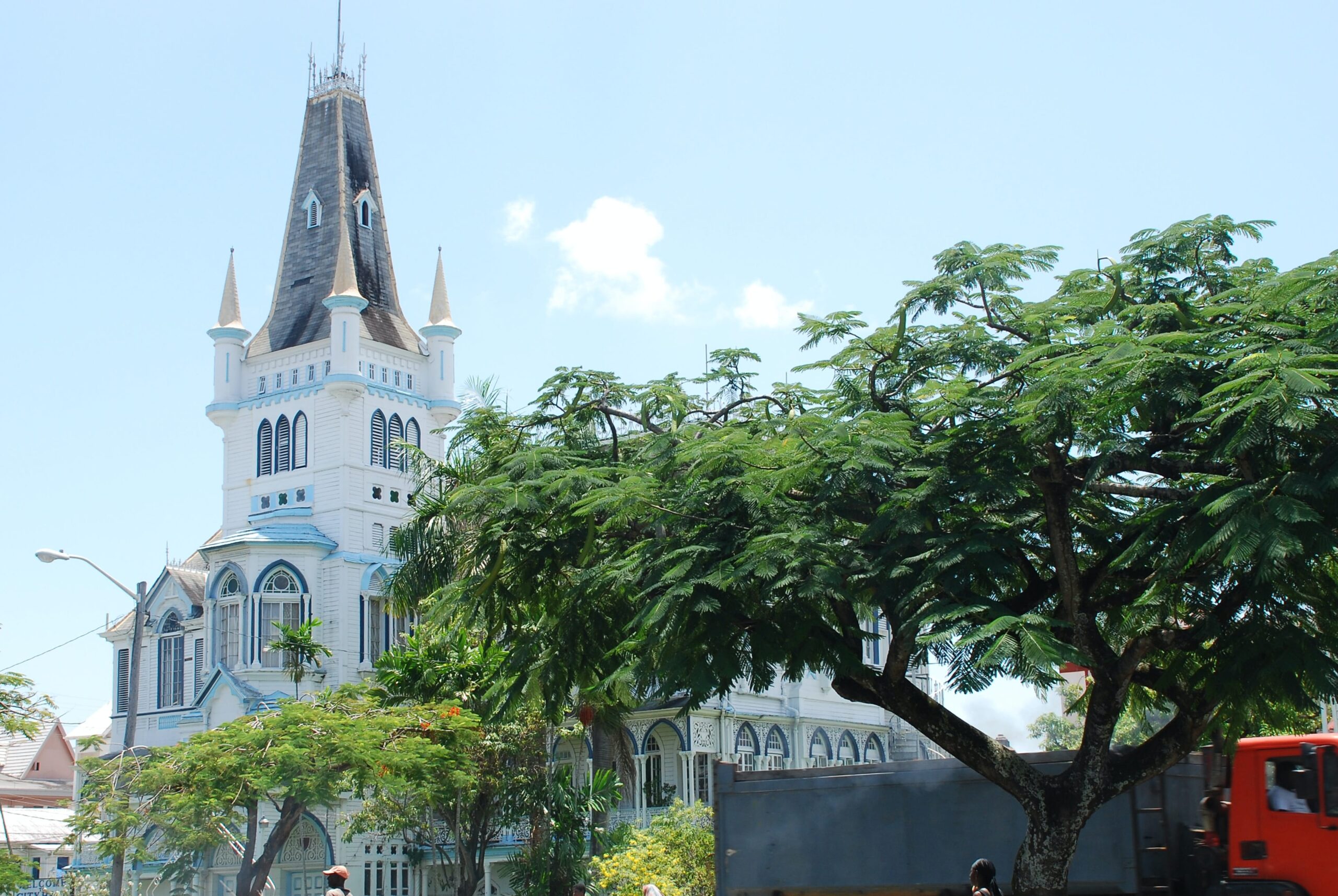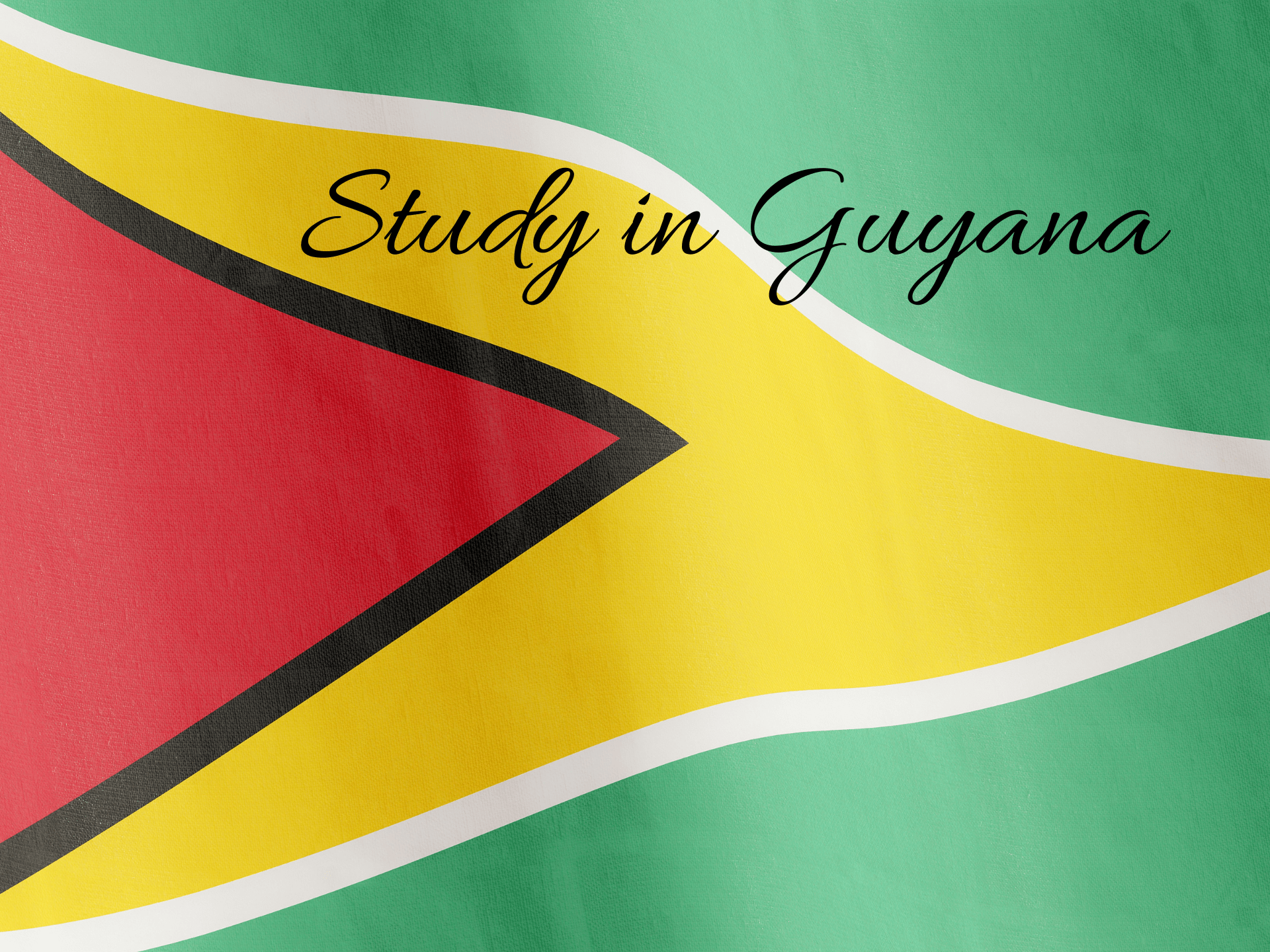
Why should you consider studying in Guyana?
Why Guyana?
There are several reasons why you should consider studying in Guyana:
- Quality Education: Guyana has several high-quality institutions of higher education. The country also has a strong tradition of providing quality education.
- Affordable Education: The cost of education in Guyana is relatively affordable compared to other countries. The government of Guyana subsidizes education, making it accessible to more people.
- Internship and Research Opportunities: Guyana has several opportunities for internships and research. Students can work with non-profit organizations, government agencies, and businesses on various development projects.
- Language: English is the official language of Guyana, making it an attractive destination for international students who want to study in an English-speaking country.
- Friendly People: Guyanese people are known for their friendly and welcoming nature. Students can expect to feel at home and welcomed in the country.
- Cultural Diversity: Guyana is a culturally diverse country, with a mix of Amerindian, African, Indian, and European cultures. This diversity creates a unique and vibrant cultural experience for students.
- Natural Beauty: Guyana is a beautiful country with a diverse range of ecosystems, including rainforests, savannas, and wetlands. Students can enjoy exploring the natural beauty of the country during their free time.
Overall, studying in Guyana can provide a unique and enriching experience for students. The country offers quality education, natural beauty, cultural diversity, and a welcoming environment for international students.
What are the best courses to study in Guyana?
Guyana offers a range of courses across various fields. Some of the popular courses to study in Guyana include:
- Medicine: Guyana offers medical programs at both undergraduate and graduate levels, with the University of Guyana being the primary institution. The university’s medical school has a strong reputation and offers a Bachelor of Medicine and Bachelor of Surgery (MBBS) program.
- Law: The University of Guyana’s law school is one of the most reputable in the Caribbean and offers a Bachelor of Laws (LLB) program.
- Engineering: The University of Guyana offers various engineering programs, including civil, electrical, mechanical, and chemical engineering.
- Agriculture: Agriculture is a significant industry in Guyana, and the University of Guyana offers programs in agriculture and forestry.
- Business: The University of Guyana offers undergraduate and graduate programs in business and management, with a focus on entrepreneurship.
- Information Technology: The University of Guyana offers undergraduate and graduate programs in computer science and information technology.
These are just a few examples of the courses available in Guyana. It’s essential to research further and find the program that aligns with your interests and career goals.
Top Universities in Guyana
There is only one university in Guyana, which is the University of Guyana. Established in 1963, it is the country’s national university and offers a wide range of undergraduate and graduate programs across various fields, including medicine, law, engineering, agriculture, business, and information technology.
The University of Guyana is located in Georgetown, the capital city, and has two campuses: the Turkeyen Campus and the Tain Campus. The Turkeyen Campus houses most of the university’s faculties and departments, while the Tain Campus offers programs in agriculture and natural sciences.
Although there is only one university in Guyana, the University of Guyana is highly regarded in the Caribbean region and has established partnerships with several international universities, including the University of the West Indies, the University of Toronto, and the University of the Southern Caribbean.
Colleges and institutions in Guyana that offers vocational and technical training
As mentioned earlier, there is only one university in Guyana, which is the University of Guyana. However, there are several other colleges and institutions that offer vocational and technical training. Here are some of the top colleges and institutions in Guyana:
- Government Technical Institute (GTI): GTI is one of the oldest technical institutions in Guyana and offers training in areas such as engineering, construction, and hospitality.
- Carnegie School of Home Economics: This institution offers training in various areas related to home economics, including culinary arts, garment construction, and interior decoration.
- Critchlow Labour College: Critchlow Labour College is a tertiary-level institution that offers courses in social sciences, business, and management.
- Nations University: This is a private university that offers undergraduate and graduate programs in business, education, and theology.
- Texila American University: This is a private university that offers undergraduate and graduate programs in medicine, nursing, and public health.
While the University of Guyana is the primary institution for higher education in Guyana, these other institutions provide additional opportunities for technical and vocational training in various fields.
How to study in Guyana?
If you are interested in studying in Guyana, here are the general steps to follow:
- Research: Start by researching the universities and colleges in Guyana and the programs they offer. Look into the admission requirements, tuition fees, and available scholarships.
- Choose a Program: Select the program that best aligns with your academic interests and career goals.
- Apply to the Institution: Once you have chosen a program, you can apply to the institution. The application process may vary depending on the institution, but it usually involves submitting an online or paper application, transcripts, test scores, and other required documents.
- Apply for a Student Visa: Non-Guyanese students will require a student visa to study in Guyana. Contact the Guyanese embassy or consulate in your country to learn about the visa application process.
- Plan your travel and accommodations: Plan your travel arrangements to Guyana and arrange for accommodations, such as on-campus housing or off-campus apartments.
- Attend Orientation: Attend the orientation program offered by the institution to familiarize yourself with the campus, academic programs, and student services.
Studying in Guyana can be a unique and rewarding experience. Be sure to plan ahead, do your research, and ask questions to ensure a smooth and successful study abroad experience.
Essential Requirements
The requirements to study in Guyana may vary depending on the institution and the program you are applying for. However, here are some essential requirements that most institutions may require:
- Academic Qualifications: You must meet the academic requirements for the program you are applying for. This may include a high school diploma or equivalent for undergraduate programs or a bachelor’s degree for graduate programs.
- Language Proficiency: English is the official language of Guyana, and most institutions may require you to demonstrate proficiency in English through standardized tests like TOEFL or IELTS.
- Application Form: You will need to complete an application form and submit it to the institution along with any required documents.
- Transcripts and Certificates: You will need to submit your official transcripts and certificates, which provide a record of your academic performance.
- Test Scores: You may be required to submit standardized test scores, such as SAT, ACT, GRE, or GMAT, depending on the program you are applying for.
- Visa: Non-Guyanese students will need to apply for a student visa to study in Guyana. This process typically involves submitting an application, passport, and other supporting documents to the Guyanese embassy or consulate in your country.
Be sure to check the specific requirements for the program you are interested in and the institution you plan to attend to ensure you meet all the necessary requirements.
The estimated cost of fulfilling your study abroad dream
The costs of studying in Guyana may vary depending on the institution and the program you choose to enroll in. Here are some of the general expenses you may incur while studying in Guyana:
- Tuition Fees: The tuition fees for international students in Guyana vary widely, depending on the institution and the program. The cost of undergraduate programs ranges from $1,000 to $4,000 per year, while graduate programs can cost up to $7,000 per year.
- Accommodation: The cost of accommodation may vary depending on whether you choose to live on-campus or off-campus. On-campus accommodation can range from $1,200 to $2,000 per semester, while off-campus apartments may cost around $250 to $400 per month.
- Food: The cost of food will depend on your eating habits, but students should budget for around $100 to $150 per month.
- Transportation: Transportation costs may vary depending on where you live and how often you use public transportation. Buses are the most common form of public transportation in Guyana, and fares range from $0.30 to $1.50.
- Books and Supplies: Textbooks and other academic supplies can cost around $100 to $300 per semester.
- Miscellaneous Expenses: Miscellaneous expenses such as health insurance, personal expenses, and entertainment can cost around $100 to $200 per month.
It is important to note that these are estimated costs, and the actual cost may vary depending on your lifestyle and the institution you attend. It is recommended to research the specific costs associated with the program and institution you are interested in to determine a more accurate budget for your studies in Guyana.
Academic Scholarships and Grants
There are several academic scholarships and grants available for international students who wish to study in Guyana. Here are some options:
- Commonwealth Scholarships: The Commonwealth Scholarship Commission offers scholarships for Master’s and Ph.D. studies in Guyana for citizens of Commonwealth countries.
- Organization of American States (OAS) Scholarships: The OAS offers scholarships to citizens of its member states to study in Guyana. The scholarships cover tuition fees, living expenses, and travel costs.
- Guyana Scholarship for Excellence: The Guyana Scholarship for Excellence is awarded to Guyanese students who have achieved academic excellence and want to pursue further studies.
- University-Specific Scholarships: Many universities in Guyana offer scholarships and bursaries to international students. These scholarships may be based on academic merit, financial need, or other criteria.
- International Scholarships: International organizations and foundations such as the Fulbright Program, the World Bank, and the United Nations offer scholarships and grants for international students to study in Guyana.
Check the eligibility criteria and application deadlines for each scholarship or grant. Additionally, some scholarships may require you to apply for admission to the institution before applying for the scholarship.
Step-by-step process to get your Student Visa
Here is a step-by-step process to get a student visa for Guyana:
- Apply to a Guyanese Institution: Before you can apply for a student visa, you must first apply and be accepted to a Guyanese institution.
- Obtain an Acceptance Letter: Once you have been accepted to a Guyanese institution, the institution will provide you with an acceptance letter, which you will need to include in your visa application.
- Gather Required Documents: You will need to gather the required documents for your student visa application. These typically include:
- Completed visa application form
- Passport with at least six months validity remaining
- Two passport-sized photographs
- Acceptance letter from the Guyanese institution
- Proof of financial support (such as bank statements or a scholarship letter)
- Medical certificate
- Police clearance certificate
- Pay the Visa Fee: You will need to pay the visa fee, which is typically around $100 USD.
- Submit Your Application: Submit your completed application and all required documents to the nearest Guyanese embassy or consulate.
- Attend an Interview: You may be required to attend an interview at the embassy or consulate. During the interview, you may be asked about your reasons for studying in Guyana and your plans after completing your studies.
- Wait for Processing: The processing time for a Guyanese student visa can vary, but it typically takes around 4-6 weeks.
- Collect Your Visa: Once your visa is approved, you will need to collect it from the embassy or consulate.
It is important to note that the visa application process may vary depending on the embassy or consulate. Be sure to check with the embassy or consulate in your country for specific requirements and procedures.
What are after-study opportunities in Guyana?
After completing your studies in Guyana, there are several works and settling opportunities available to you. Here are some options:
- Employment: You may be able to find employment in Guyana after completing your studies. The government and private sectors offer various job opportunities in areas such as healthcare, education, tourism, and mining. If you have found employment in Guyana, you will need to obtain a work permit. The work permit will allow you to legally work in Guyana for a specific period of time.
- Entrepreneurship: Guyana is a growing economy and offers opportunities for entrepreneurship. You may choose to start your own business or work with existing businesses in various industries. As an entrepreneur, you may be eligible for certain business-related visas and permits.
- Volunteering: If you wish to stay in Guyana and contribute to the community. There are several volunteer opportunities available in Guyana. You may choose to volunteer with non-profit organizations or work with government agencies on various development projects.
- Further Education: If you are interested in furthering your education, you may choose to pursue a postgraduate degree in Guyana or abroad.
- Return Home: After completing your studies, you may choose to return to your home country and apply your newly acquired skills and knowledge to benefit your community.
Settling options
- Permanent Residence: If you wish to stay in Guyana permanently, you may apply for permanent residence. The application process typically involves demonstrating your contributions to the country, such as your work experience or investment in the country.
- Citizenship: After living in Guyana for a specific period of time, you may be eligible to apply for citizenship. Citizenship will allow you to live and work in Guyana indefinitely.
It is important to note that some opportunities may require additional visas or work permits. Be sure to research the specific requirements and procedures for each opportunity you are interested in pursuing.
Hope you found this article helpful, if you have any suggestions or queries regarding this article, then feel free to comment on the post, and we will get back to your queries ASAP. Thank you and Best of Luck😊.




